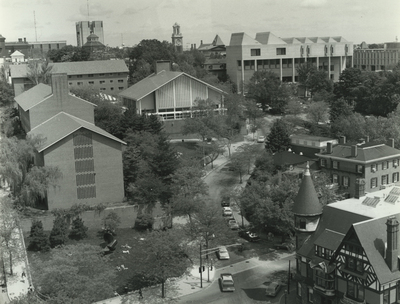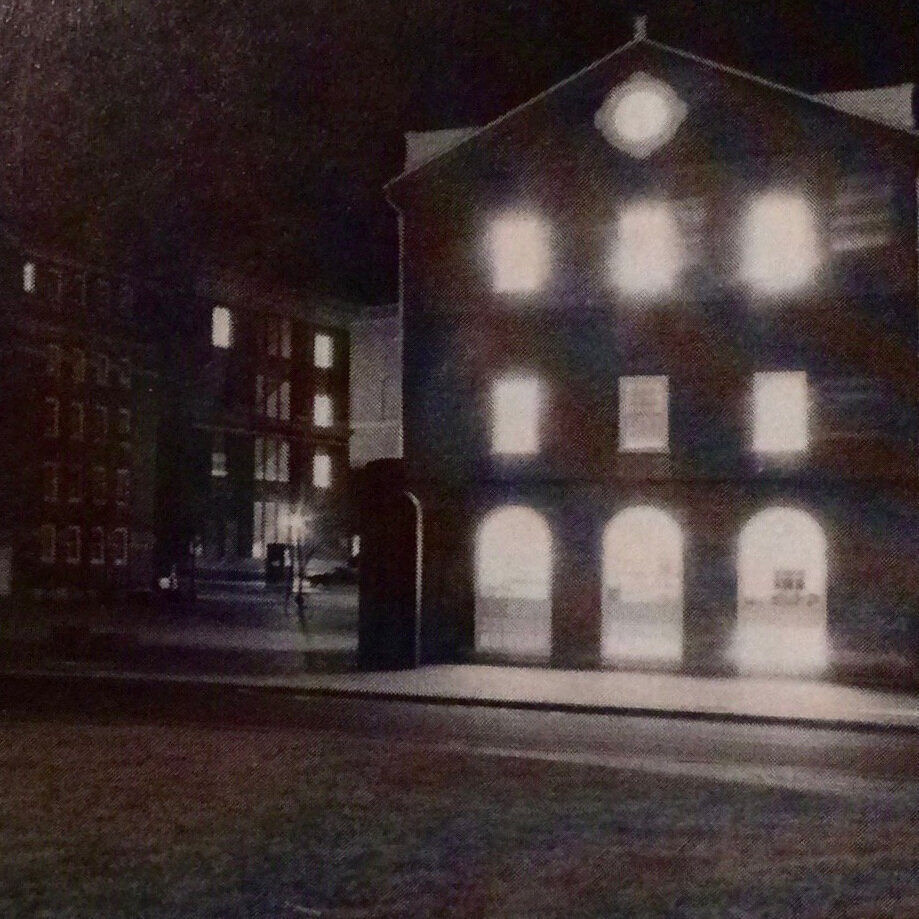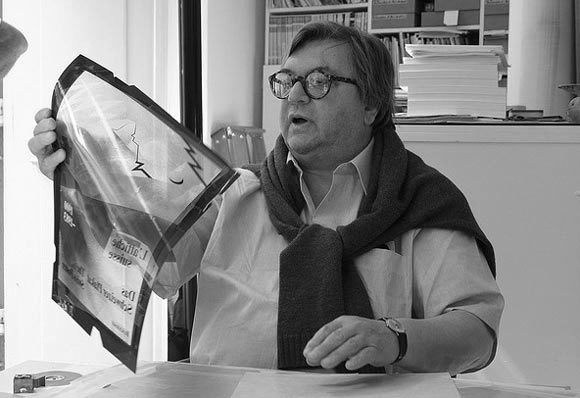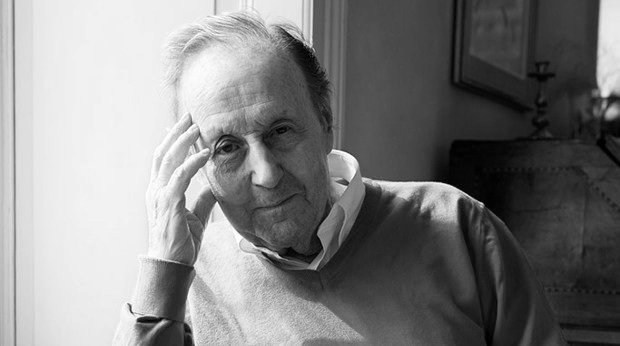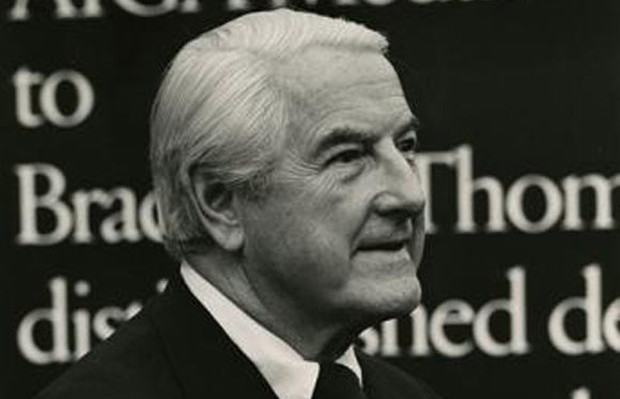Wolfgang :: Weingart bent a green flexible drafting rule into a curve high above his head and said, “Why can’t type do this? It was rhetorical, because it could, and his work demonstrated it. During his lecture, he spoke about his philosophy, landscapes that influenced him, showed us slides of his work, and went into depth about a couple of projects. He learned typography, letterpress, and offset printing through traditional methods. He didn’t just parachute into what we all knew him for but came about organically over time. It relied on photography, traditional typographic forms, the layering of photographic films, and his intuition. Along with other legends like April Greiman, he provided my generation permission to experiment. There were students lying on their backs in the aisles drowsy and dosing off, while others were slumped in the cushy red velvet theater seats. Everyone in the auditorium was sleep deprived.
Earlier in the day, he unexpectedly stopped by the studio with our professor who escorted him to the desks of anyone who was present to look at our book projects. We were introduced and asked to walk him through our work. When it was my turn, I explained my overall intent, and how each thematic spread interpreted the architecture of the State Capitol building. I don’t remember what his reaction was exactly, or what he mumbled, but I do remember he looked at me and nodded.
Armin :: Hoffman’s visit to our afternoon studio class was scheduled. We knew he was coming so I had all morning to get worked up. I was nervous when he and our professor entered the room. After they had reviewed a couple of my classmates’ books, they made their way to my desk. It was the same project Weingart had viewed. I walked him through it and he nodded a couple of times without speaking. After I finished, he looked at me and said, “thank you”. I said “thank you” and we shook hands. Standing near him while he looked at my work and listened to what I said was unimaginable a year earlier. I owned his book because it was required reading in undergraduate school. I knew a couple of students and professors who’d taken classes with him at other institutions, so his legendary frankness proceeded him. Apparently, he could be extremely harsh and direct during critiques. I don’t know if it was true, or if it was myth, but just in case, I tried to prepare myself for him to dismiss my work and tell me I was in the wrong field. He didn’t. In fact, he was polite and soft spoken. Afterwards, I walked outside to smoke with a friend and we both felt like we were in a dream.
Bradbury :: Thompson was a legend too. My classmates and I had dinner with him during Fall semester. Our meal was in a sparse, private room off the main dining hall on campus. It was surrounded on two sides by large floor to ceiling windows, glass doors with a single long table in the middle of the room. One side faced an outdoor courtyard and the other side faced inward towards the main hall. Bradbury was seated at the head of the table and the rest of us flanked him on each side. I was a few seats away facing the outside courtyard and relieved that I wasn’t sitting any closer. At some point early into the meal, a classmate who was struggling with the early stages of his thesis, asked Bradbury if he could ask a question. “Yes, of course young man,” or something similarly polite. “When you’re struggling to find a design solution for a project, or you’re having a creative block, what do you do to get yourself out of it?” There was a lengthy pause and after careful thought, Bradbury looked at my classmate and said “Um… well… I’m not sure, I’ve never really experienced that.”
After a few beats, myself and at least two other people involuntarily snorted to try and avoid laughing out loud. We couldn’t help it. We were all struggling in various ways. Bradbury didn’t respond with ego, or attitude in any way. He seemed far too humble and too much of a gentleman for anything other than honesty and sincerity. Apparently, he just hadn’t ever experienced a creative struggle before. Our classmates face changed. He looked even more pale than usual. Bradbury saw his face and sensed what was happening and said, “However…, sometimes when I need to think through a complex idea, I’ll go for a walk in the woods near my home. That usually helps.” Our classmate was visibly relieved. We were all relieved because Bradbury had graciously provided an escape hatch for anyone who needed it.
Songs :: Walking In The Rain and Feel Up by Grace Jones, How Soon Is Now by The Smiths, Persona Grata by Joan Armatrading, and Burnin’ Coal by Les McCann
© C. Davidson

